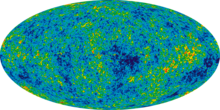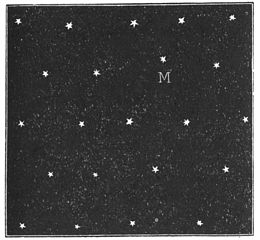| Part of a series on |
| Physical cosmology |
|---|
 |
Unsolved problem in physics:
Are cosmological observations made from Earth representative of observations from the average position in the universe?

In physical cosmology, the Copernican principle states that humans are not privileged observers of the universe,[1] that observations from the Earth are representative of observations from the average position in the universe. Named for Copernican heliocentrism, it is a working assumption that arises from a modified cosmological extension of Copernicus' argument of a moving Earth.[2]
- ^ Peacock, John A. (1998). Cosmological Physics. Cambridge University Press. p. 66. ISBN 978-0-521-42270-3.
- ^ Bondi, Hermann (1952). Cosmology. Cambridge University Press. p. 13.